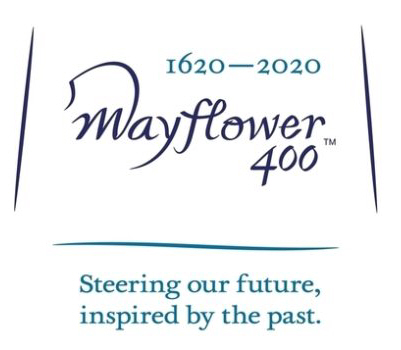Criticism on the Mayflower400 commemoration year in Leiden

In 2020, Leiden celebrates the “Mayflower 400” year, a commemoration of the journey the Pilgrims made to America on the Mayflower four hundred years ago. The Pilgrims were a group of religious refugees who left England in 1609 for the Netherlands. They were very strict in Protestant doctrine, quite fundamentalist and patriarchal from a modern perspective. They lived in Leiden for twelve years, but then found the climate here too free; they were afraid that their young people would become absorbed in the Leiden population and would abandon the strict Protestant rules of life. That is why they sailed in 1620 (four hundred years ago) to what is now the United States to found their own colony there. They thought they could build their religious community there without the risk of external influence.
This article was translated by Lucinda Juliani. Here’s the original text in Dutch.
The colony, Plymouth Plantation, was one of the first of a series of colonial settlements to be established in that area around that time. They were at the forefront of a wave of white Europeans who saw the locals as inferior, and who, in their delusions of superiority, believed that they could occupy all the land in America. All this was funded by the first European capitalist companies. They provided the money after seeing how the Spaniards in the prior century had made monstrous profits in the more southern parts of America. The Pilgrims’ arrival thus added new fuel to the fire of the genocide of the indigenous people of America that took place since Columbus landed and still continues to take place, as well as the destruction of nature and the land on which they live.
But in the nationalist history and folklore of the United States, the Pilgrims are seen as the founders of that nation. They symbolize the “adventurers” who were the first to “risk their lives” and settle in what is now the US. Their lives as religious refugees are simplified and romanticized. They are imagined as the basis of the liberal democracy that would now characterize the US. There are pervasive, institutionalized myths around the Pilgrims, for example, that they enjoyed good ties with the Wampanoag, who lived in the area where the Pilgrims went ashore. That is commemorated every year with the popular American holiday Thanksgiving, which is strongly criticized by the original Americans (along with other popular holidays in the US, such as Columbus Day).
The commemoration of the 400-year departure of the Pilgrims from Europe is celebrated not only in Leiden, but also in England and the US. With this commemorative year, Leiden is cleverly anticipating the racist and nationalistic sentiment around the Pilgrims. Leiden Marketing, which is the engine behind the project, hopes for a large stream of tourists, potential business relations, and other lucrative deals. For them it seems to be a major marketing trick (2018 was the water year, 2019 the year of Rembrandt and the Golden Age). And so Leiden surfs on the interest of the Pilgrims, over the back of the original inhabitants of America, who mourn, not celebrate, the crossing of the Pilgrims.
Preparations for #mayflower400 are in full swing, and that is why we now want to analyze the ideological story and provide a dissenting voice. Because commemorating the departure of the Pilgrims to America four hundred years ago actually commemorates continuing genocide and environmental destruction in North America. This commemoration equals glorification of colonialism and racism. A city that shows off its progressive image as “city of refugees” and “city of discoveries” should not go along with that.
Below is an overview of the articles we have written so far.
Doorbraak
Onze artikelen over #mayflower400
1. Kritiek op het Pilgrim-herdenkingsjaar in Leiden (overzicht)
2. Enkele kritische vragen bij de Pilgrim-citymarketing in Leiden (Tweets)
3. #Mayflower400: Leiden kiest de kant van de kolonisator
4. Teken ook de open brief: “Delfshaven400/Pilgrim Harbour is geschiedvervalsing van het Nederlandse kolonialisme”
5. Lakenhal-expositie zet koloniale christenfundamentalistische Pilgrims in het zonnetje
Our articles on #mayflower400
1. Criticism on the Mayflower400 commemoration year in Leiden
2. #Mayflower400: Leiden chooses side of the coloniser
3. Leiden Pilgrim commemoration changes, but is still colonial
4. Letter to Delfshaven400: “You can’t commemmorate the Pilgrims without reference to colonisation”
